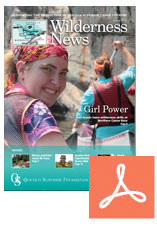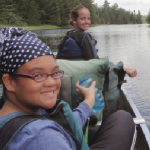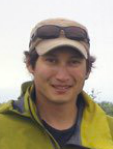WHAT’S INSIDE:
‘Before and After’ Leave No Trace – Researcher warns of increasing impacts and urges end of axe and saw culture.
By Greg Seitz
A canoeist paddling along the shore of a Boundary Waters lake will see miles of unbroken forest. Trees grow and fall and rot, water washes against rock and soil, all unaffected by humans. Then, arriving at a campsite, a much different landscape often greets the paddler, abundant with human impacts.
With stewardship by visitors and proactive management by the Forest Service, the experience at campsites could be nearly as wild as the surrounding shoreline, says researcher and Leave No Trace advocate Jeff Marion.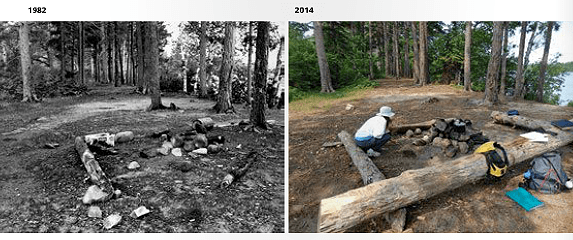
Marion says wilderness visitors should leave the axe at home in the future. After completing a study of campsite impacts, he believes ongoing degradation of trees at wilderness campsites means it is time to restrict the use of woods tools.
Read More >
Leave No Trace: Be part of the solution
Simple practices can help preserve the integrity of our parks and wilderness areas…
Read More >
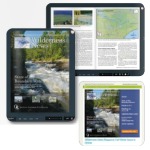
Wilderness News is going digital—be a part of the change!
Beginning in 2016, Wilderness News will become a digital publication. To continue receiving in-depth coverage of the issues facing the Boundary Waters and Quetico Park region for free, simply send your name and email address to editor@queticosuperior.org and let us know that you want to subscribe to the digital edition.
Northern Lakes Canoe Base
by Alissa Johnson
Picture the Girl Scouts, and it’s likely that young girls selling cookies come to mind. And while that can be part of the experience, Northern Lakes Canoe Base is offering up a very different image of what it can mean to be a Girl Scout: girls working together to meet the challenges of wilderness canoe tripping. Paddling against headwinds. Crossing muddy portages. Starting campfires in the rain. Exploring and getting to know a true wilderness area. Sitting around that fire at night, proud of their accomplishments and enjoying new friends. Based outside of Ely, Minnesota, Northern Lakes Canoe Base offers wilderness canoe trips exclusively for girls, whether they come on their own, with a friend, or as part of their troop.
“We are trying to show girls that when you turn 12, that’s when girl scouting gets really good. With all those skills you learned as a Brownie, you’re ready to take the next step and go on an adventure,” says Ann McNally, Summer Program Director for Northern Lakes Canoe Base. And adventure is something that girls are seeking. “A lot of councils are realizing that girls are seeking adventure and that they need to meet this need, so they’re calling us because to my knowledge we’re the only program exclusively for girls that offers wilderness canoe trips in the Boundary Waters.”
Read More >
Quetico Provincial Park Superintendent Trevor Gibb:
Maintaining a Pristine Wilderness Experience
by Alissa Johnson
At 32 years old, Trevor Gibb is relatively young to hold the position of Park Superintendent for Quetico Provincial Park, yet he is no stranger to remote and wilderness areas. He got his start in Ontario’s Provincial Park System as a backcountry warden at Killarney Provincial Park in northern Ontario, which is smaller than Quetico but attracts a similar user group, and later became an assistant superintendent in the Cochrane cluster of 29 provincial parks. The latter includes Polar Bear Provincial Park, which is the largest provincial park in Ontario and home to some of the world’s southernmost population of polar bears as well as an internationally important bird area. He also spent two years teaching in an Inuit Community on Baffin Island in the Canadian Arctic.
Read More >
Board Member Profile: Meet Emilie Hitch, Board member since 2010
“Being involved with the QSF means a few things to me. First, it means that I am a part of a community of people who share my belief that protecting the wilderness is important. Secondly, it means that I spend time and energy with people who are committed to the idea that the connection between people and the natural world is crucial for the health of our society. The Quetico Superior Foundation is dedicated to protecting the region, but we also believe it’s our responsibility to help people understand why we all need wild places…”
Read More >


